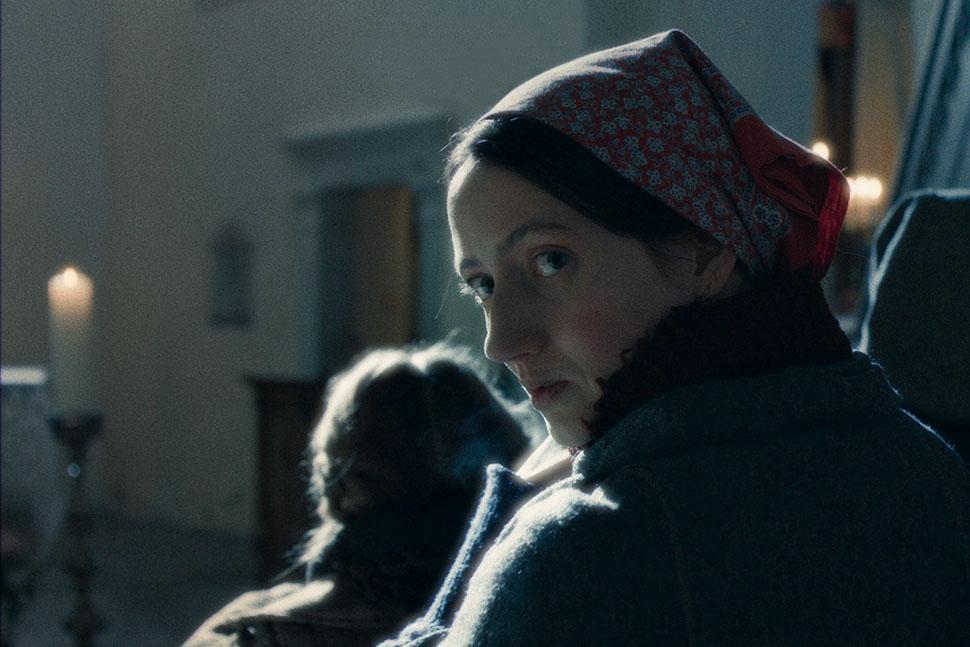
Also in competition at this year’s Venice Film Festival are a number of local Italian features. The first is Maura Delporo’s patient drama Vermiglio, which follows her debut feature Maternal from 2019. Set in a remote mountain village during WWII, we follow the lives of a teacher and his large family after a wounded soldier falls in love with his daughter. The episode goes on to reveal the dysfunctionality of the family and the secrets we all repress.
Vermiglio is exactly the kind of period story that really appeals to Italian audiences (last year’s C’e ancora domani by Paola Cortellesi was a brilliant commercial and critical success), as it explores modern themes of faith, sexuality, femininity, and family, in the context of the past. The audience response to Vermiglio was a loud applause. But much of that, I think, has to do with Delporo showing us that lost time and place in all of its sweeping grandeur, and not so much at how enjoyable Vermiglio‘s story or pacing is. The photography is beautiful. Snowy mountains and verdant fields are fixed in place as the villagers live through the seasons. It reminded me at times of the atmosphere evoked by Nuri Bilge Ceylan’s Winter’s Sleep (2014), but without any of the same depth afforded to the characters.
There are too many characters here for the two hour runtime. The family alone has around five or six characters that we must follow, each with their own secrets and obstacles. Then, there is local rebel Virginia (we’re supposed to be in awe of her but it feels inconsequential by the time she’s shipped off to South America), Sicilian soldier Giuseppe (who is interesting, and serves as a focal point for the big drama, but is given barely any dialogue to endear us to him), his mute brother-in-arms Attilio, as well as a few more. The film’s biggest narrative: the romance of Giuseppe and the teacher’s daughter, the doe-eyed Lucia, must forfeit any potential for real depth so that we endure characters like troubled alcoholic Pietro, or watching Virginia smoke in a barn during some witchy scenes that include a goat. Ultimately, the pace is also too slow for us to enjoy these personal portraits. I felt while watching that Delporo might have even faced that conflict herself while making the film. And so these stories simply pass by, and rather predictably, too—so that none of the supposed twists are felt in any way.
Vermiglio does have good things going for it. As I mentioned, the photography is wonderful, and serves as a window into a part of Italy that we are not often shown on screen. The regional dialects, rituals, and costumes of Alpine Italy feel foreign and mysterious to a viewer used to seeing the cities or the South portrayed instead. When the plot takes a trip to Sicily, it appears bright and safe in contrast to the shadowy setting we’ve been watching for an hour and a half. This is the Italy we’re familiar with.
By transplanting us to this remote village, Delporo excels at showing us the magnitude of secrets in everyday lives far removed from our own. If only she could have focused on leaving us with a better understanding of the humanity of the people who reside there, I wouldn’t have left feeling that I had such a brief acquaintance with so many.





